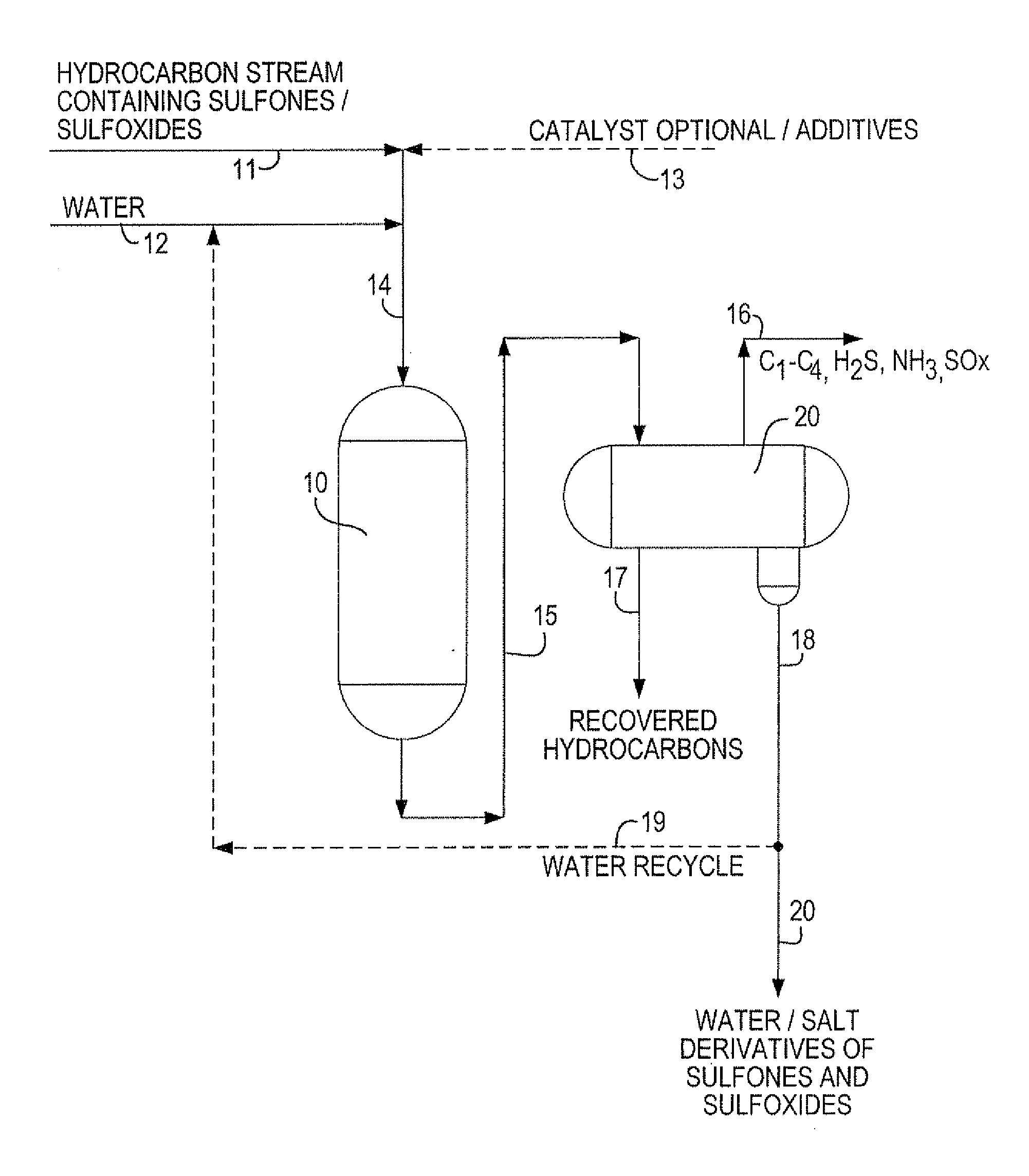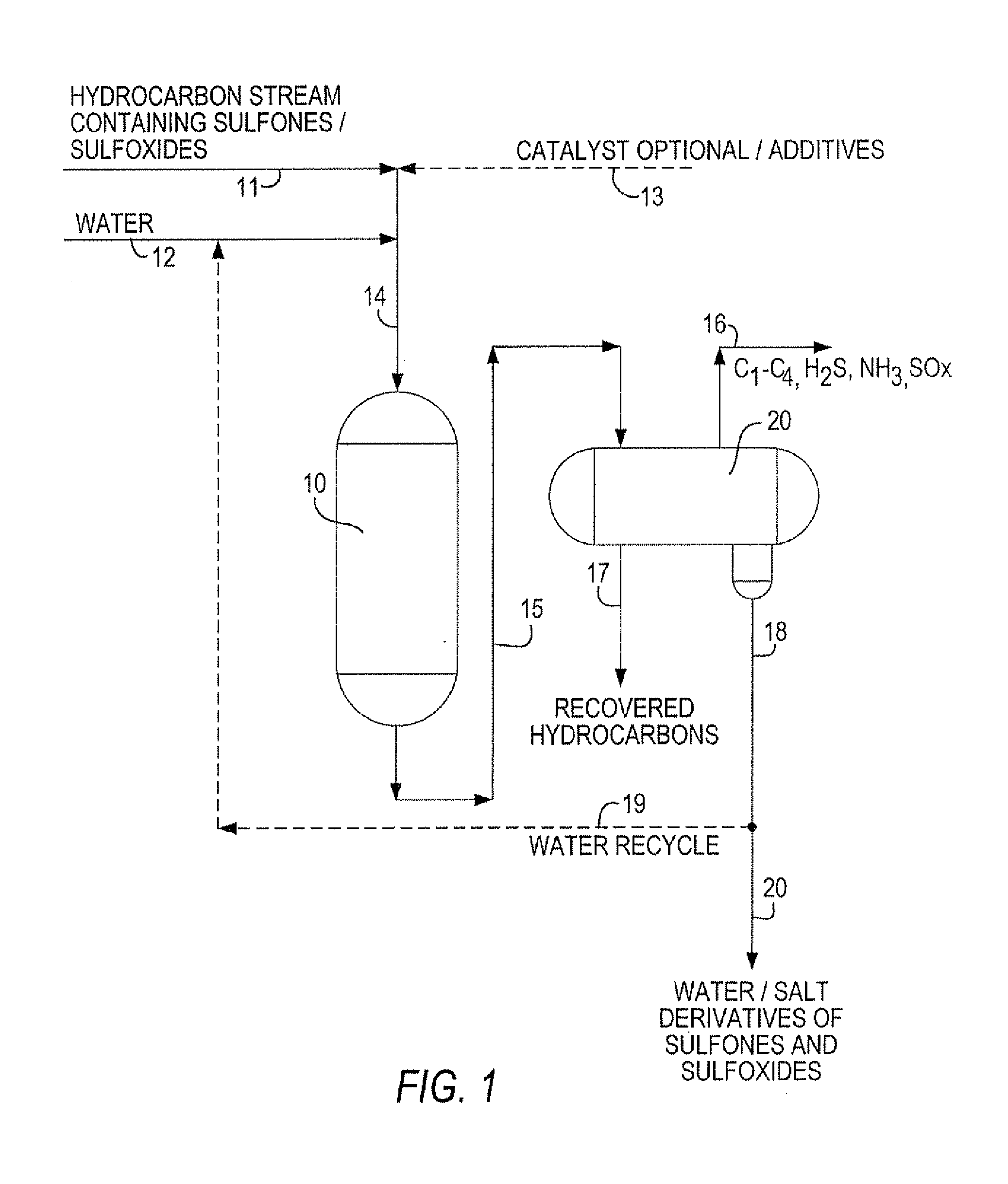Sulfone cracking using supercritical water
a technology of supercritical water and sulfur-containing organic compounds, which is applied in the direction of hydrocarbon oil treatment, liquid hydrocarbon mixture production, refining with acid-containing liquids, etc., can solve the problems of large yield loss, large environmental pollution, and negative impact on the environment and process economics, so as to achieve hydrocracking in large volume and more economically.
- Summary
- Abstract
- Description
- Claims
- Application Information
AI Technical Summary
Benefits of technology
Problems solved by technology
Method used
Image
Examples
Embodiment Construction
[0030]The present invention comprehends a process to convert hydrocarbon streams containing oxides of sulfur, sulfones and sulfoxides. The process includes the following steps:[0031]a) contacting the hydrocarbon stream with water in a reactor at supercritical water conditions in the absence of a catalyst or in the presence of a catalyst or additive; and,[0032]b) subjecting the effluent hydrocarbon stream to a vapor / liquid / liquid separator to obtain a hydrocarbon fraction free of oxides of sulfur, SOx and water containing salts and derivatives of oxides of sulfur.
[0033]In the process of the present invention, sulfones and sulfoxides and mixtures thereof are recovered from oxidative desulfurization by extraction and / or adsorption and / or absorption and / or membrane separation and / or distillation and / or solvent deasphalting and / or filtration and / or phase separation and are contacted with supercritical water either in the presence or absence of a catalytic system to break the carbon-sulfu...
PUM
 Login to View More
Login to View More Abstract
Description
Claims
Application Information
 Login to View More
Login to View More - R&D
- Intellectual Property
- Life Sciences
- Materials
- Tech Scout
- Unparalleled Data Quality
- Higher Quality Content
- 60% Fewer Hallucinations
Browse by: Latest US Patents, China's latest patents, Technical Efficacy Thesaurus, Application Domain, Technology Topic, Popular Technical Reports.
© 2025 PatSnap. All rights reserved.Legal|Privacy policy|Modern Slavery Act Transparency Statement|Sitemap|About US| Contact US: help@patsnap.com


